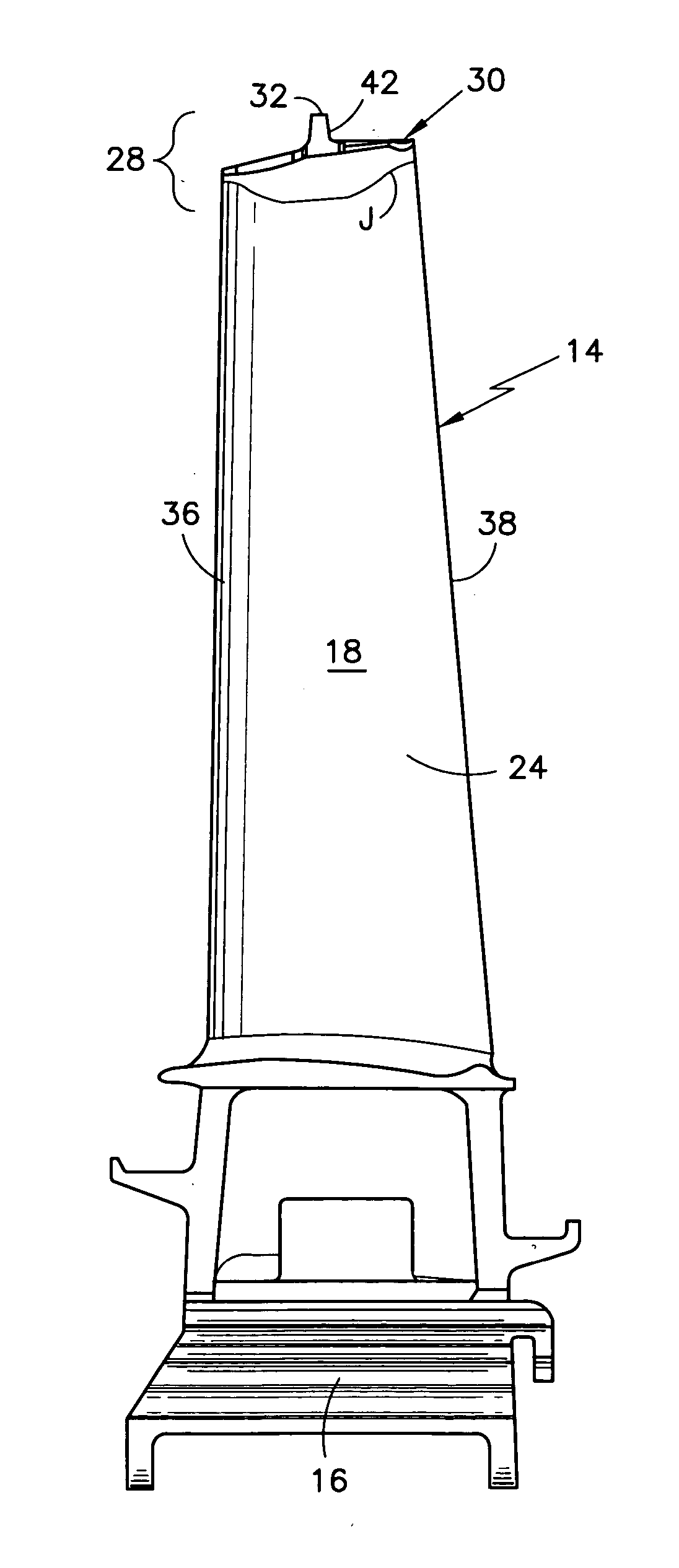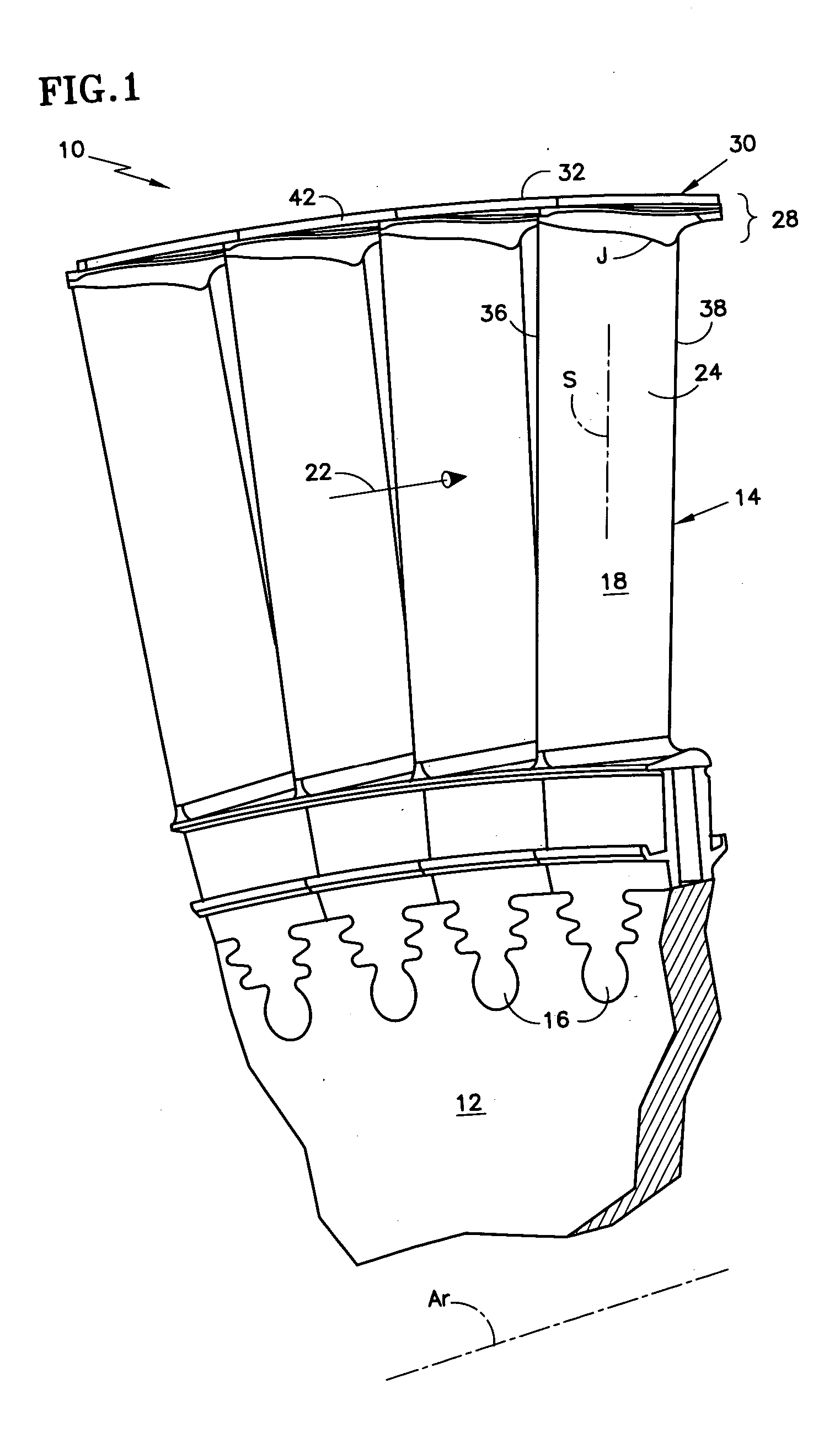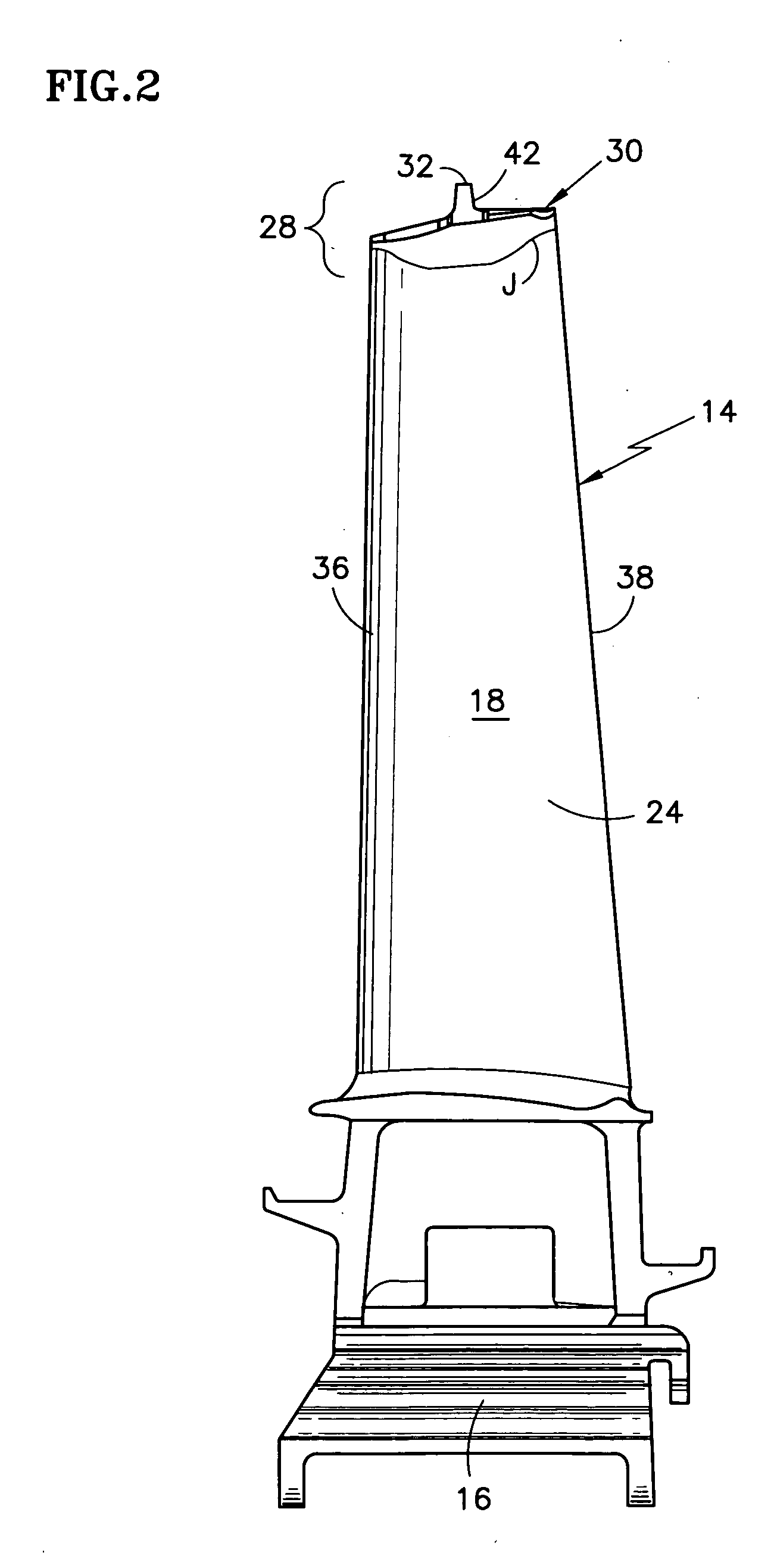Rotor blade for a rotary machine
a rotary machine and rotor blade technology, applied in the field of rotor blades, can solve the problems of increasing stresses at the interface of the shroud airfoil, creeping of the airfoil, and creeping of parts of the shroud, so as to reduce the stress concentration factor, reduce surface stress, and reduce the effect of stress concentration factor
- Summary
- Abstract
- Description
- Claims
- Application Information
AI Technical Summary
Benefits of technology
Problems solved by technology
Method used
Image
Examples
Embodiment Construction
[0034]FIG. 1 is a simplified front elevation view of a rotor assembly 10 of a rotary machine having an axis Ar. The rotor assembly includes a rotating structure, as represented by the disk 12, and a plurality of outwardly extending rotor blades 14. Each rotor blade has a root 16 and an airfoil 18 being disposed about a spanwisely extending axis S, which is commonly called the stacking line S. The airfoil has a pressure side 24 and a suction side 26. A flowpath 22 for working medium gases extends through the rotor blades between the sides of the airfoil.
[0035] The rotor blade has a tip region 28 having a tip shroud 30. The tip shroud includes a seal land 32 which is a surface having a radius of curvature about the axis Ar. The tip shroud has a transition zone 34 which extends from the sides 24, 26 of the airfoil, as represented by the pressure side. The transition zone includes part of a flowpath surface which extends from a tangent to the pressure side of the airfoil along a juncti...
PUM
 Login to View More
Login to View More Abstract
Description
Claims
Application Information
 Login to View More
Login to View More - R&D
- Intellectual Property
- Life Sciences
- Materials
- Tech Scout
- Unparalleled Data Quality
- Higher Quality Content
- 60% Fewer Hallucinations
Browse by: Latest US Patents, China's latest patents, Technical Efficacy Thesaurus, Application Domain, Technology Topic, Popular Technical Reports.
© 2025 PatSnap. All rights reserved.Legal|Privacy policy|Modern Slavery Act Transparency Statement|Sitemap|About US| Contact US: help@patsnap.com



